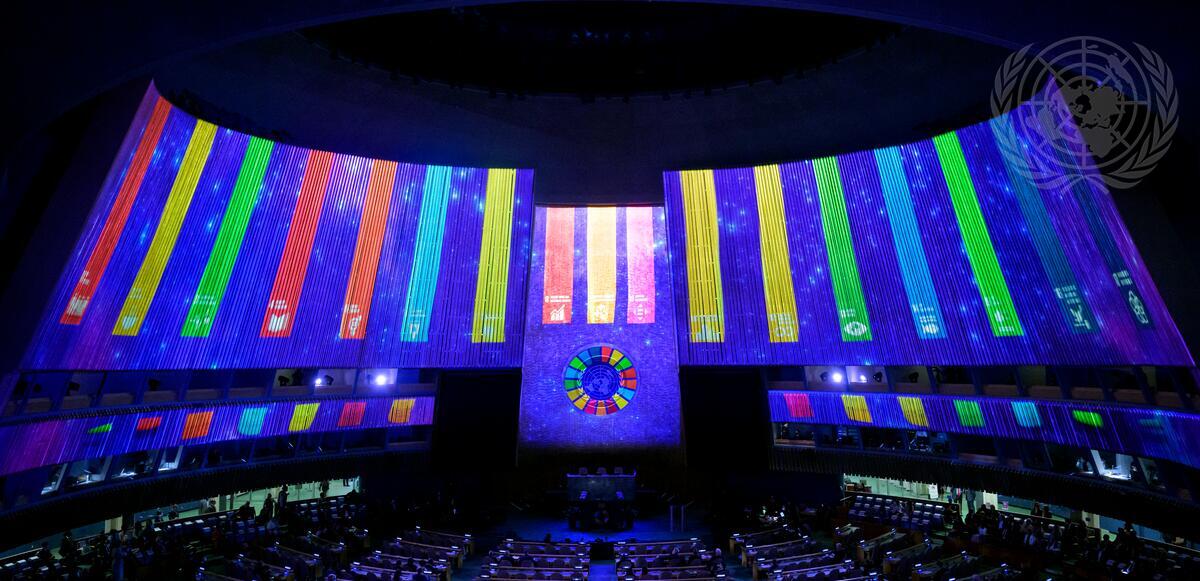New STOP brief warns of tobacco industry attempts to influence UN audiences
at
Coinciding with the 77th United Nations General Assembly (UNGA77), STOP has published a new brief warning of tobacco industry attempts to influence policy discussions amongst UN audiences, on topics such as the rights of the child and sustainable financing for development, including for progress on the Sustainable Development Goals (SDGs).
STOP is clear that the tobacco industry has no place in these discussions, given its long history of child labour and marketing to youth; its underhand and illegal tactics in Africa; and its attempts to shirk responsibility for the economic burden caused by its products. It urges governments, UN officials and tobacco control advocates to remain vigilant and prevent industry interference around UN events.

A wide view of the projections in the General Assembly Hall during the SDG Moment 2022. Credit: UN Photo/Manuel Elias
Recent decades have seen the introduction of landmark regulations such as the WHO’s Framework Convention on Tobacco Control (FCTC) and the UN’s Model Policy for Agencies of the United Nations System on Preventing Tobacco Industry Interference, designed to prevent the tobacco industry from engaging with governments and UN agencies. Despite these advances, the industry continues to seek a route back to the table, often via the use of side events, allies and front groups.
One example is an annual side event held by Concordia, an organization which promotes cross-sector and public-private partnerships, of which PMI is a patron member. Not only does this event provide PMI with access to UN and government officials from around the world, it also provides brand exposure and creates the impression that the tobacco company is a legitimate partner in innovation and social impact.
The brief also denounces the Eliminating Child Labour in Tobacco Growing Foundation (ECLT), another third-party entity with which the industry has successfully engaged with UN agencies, as well as recent acquisitions of medical and pharmaceutical companies by the industry, particularly PMI.
STOP urges government delegations and UN officials to accelerate progress on the SDGs by resisting all forms of tobacco industry interference, by promoting full implementation of the WHO FCTC, and by increasing taxes on tobacco products as a means of raising finance for sustainable development.